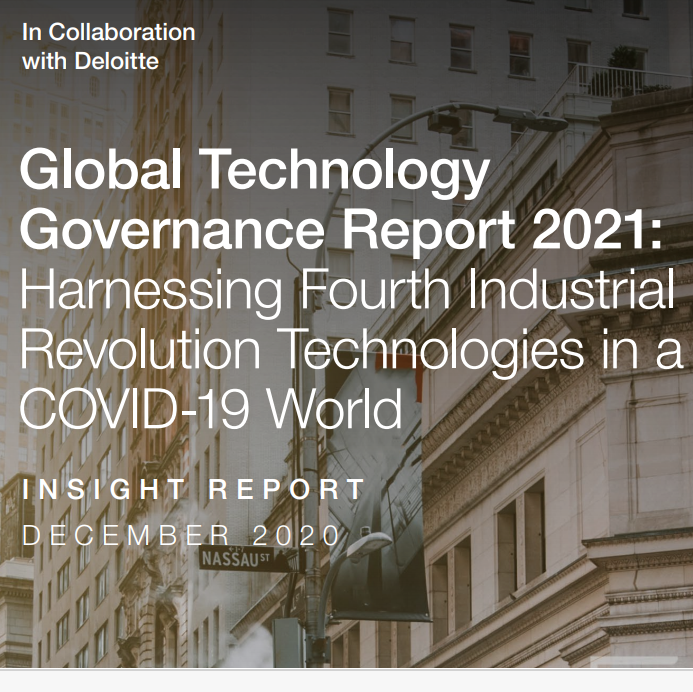The World Economic Forum (WEF) has released a new report examining gaps in global technology governance for critical emerging technologies, including AI, Blockchain, Mobility/Automotive, IoT and Drones. As well as underlining the significance of these gaps and the risks that could result – both to society and the industries attempting to use them – it includes examples of countries and organisations that have created new governance models in response to these gaps.
The report comes as stimulus ahead of a Summit in April to explore global coordination and cooperation to resolve some of the most challenging issues societies face in the emergence of new technology.
In a related news release the WEF said:
“Fourth Industrial Revolution technologies can play a significant role in helping societies emerge from the pandemic stronger than ever” shared Murat Sönmez, Managing Director, World Economic Forum. “However, if not directed with purpose, the Fourth Industrial Revolution could exacerbate inequality; therefore, proactive steps must be taken to ensure technology adoption does not heighten abuse of power, bias, wealth disparities, exclusion and loss of livelihoods.”
Efforts to recover from COVID-19 have triggered an influx of innovations in work, collaboration, distribution and service delivery – and shifted many customer behaviours. While these technologies can help drive enormous social breakthroughs and economic value, they can also be misused.
New governance models are required to fill gaps, enhance technology’s benefits and avoid harm. The COVID-19 pandemic has accelerated the urgent need to address these gaps.
The World Economic Forum and Deloitte produced a practical handbook to examine some of the Fourth Industrial Revolution’s most critical applications. The report aims to address these technologies’ governance challenges in a post-pandemic world so they can reach their full potential. “Every industrial revolution has reshaped economies and social structures in ways that have defined local, regional and global history. The technologies driving the Fourth Industrial Revolution are already presenting opportunities and challenges we can only address through a forward-looking and innovative approach to governance,” said William D. Eggers, Executive Director of the Deloitte Center for Government Insights. “The question is, how can we harness and shape this disruption in a way that promotes global economic recovery, expands human opportunity and increases cooperation and security?”
To access the full report, visit the WEF website here.







